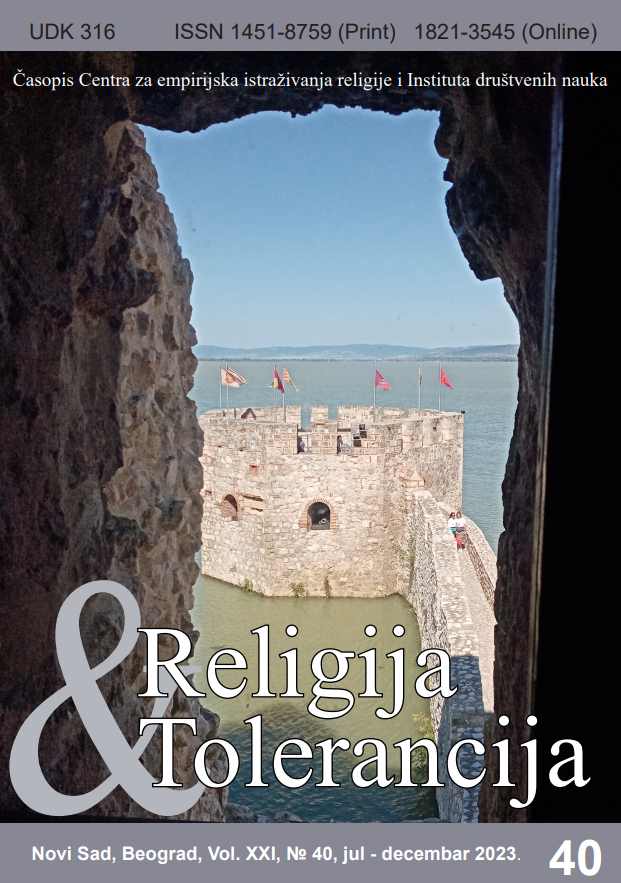RELIGIOUS AND LITERARY TEXTS AS POWERFUL TOOLS FOR RESHAPING THE POWER DYNAMIC IN ENVIRONMENTAL DECISION-MAKING
RELIGIOUS AND LITERARY TEXTS AS POWERFUL TOOLS FOR RESHAPING THE POWER DYNAMIC IN ENVIRONMENTAL DECISION-MAKING
Author(s): Milena ŠkoboSubject(s): Language and Literature Studies, Theology and Religion
Published by: Centar za empirijska istraživanja religije (CEIR)
Keywords: ecocriticism; transcorporeality; body/soul and nature/environment; literary and religious texts; environmental ethics
Summary/Abstract: According to scholars advocating the ‘deep ecology’ standpoint, the root of the ecological crisis lies in monotheistic religions, particularly Western Christianity, which established a system of dualities based on dichotomies such as male/female, soul/ body, culture/nature, heaven/earth, and man/nature. This paper seeks to illuminate the importance of revitalizing the ecological principles within the Christian tradition as a response to the urgent challenges presented by the increasing peril of environmental degradation in contemporary society. It seeks to demonstrate that religion and literature are powerful sources with great potential to contribute to environmental ethics and global sustainability. In other words, to effectively address global environmental concerns, we must tap into the ecological wisdom embedded in religious and literary (and religiously inspired literary) texts. This requires handling these texts with care, understanding them in their proper context, and reevaluating them thoughtfully. Instead of emphasizing dualisms that widen the gap between radical ecologists and radical anthropologists, the paper rejects binary oppositions. It draws upon ideas advocated by fourth-wave ecocritics, who introduce the notion of transcorporeality and recognize the interconnectedness between humans and the more-than-human world. Transcorporeality refers to the idea that the human body and the environment/nature (and similarly, the human mind/soul and environment) cannot be viewed as separate entities. This concept is essential to the paper’s central idea: the hypothesis that literature, art, religion, and all other forms of creative expression should be regarded as renewable energy sources with significant applications in the physical world/nature. Embracing the concept of transcorporeality liberates human beings from the constraints of dualistic ideology, enabling a more genuine expression and development of spirituality and humanity while promoting the preservation of the planet’s balance and sustainability.
Journal: Religija i tolerancija
- Issue Year: 21/2023
- Issue No: 40
- Page Range: 251-265
- Page Count: 15
- Language: English

